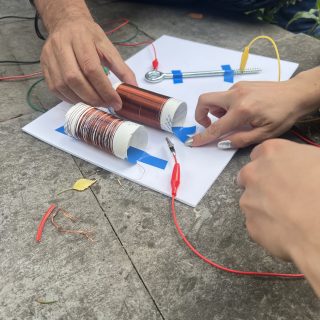http://www.balkaninsight.com/
BIRN Sarajevo
More than 1,000 women in Bosnia and Herzegovina who suffered sexual violence during the 1990s conflict cannot become mothers because of serious psychological traumas and the medical consequences of being raped.
“The truth is that they killed my youth. The truth is that I lost my home and marriage. Yes, they took my unborn child. The truth is that I could never become a mother, I could never be and I am not a mother,” a Bosnian woman in her fifties told BIRN.
She agreed to speak about how she was detained and raped by Bosnian Serb soldiers in the north-eastern town of Brcko in 1992 at the start of the conflict, but asked for her name to be withheld.
“I was the youngest of the captured women. The two other women were older. And then, all of a sudden, a guy called Rus pulled me by my hand and said: ‘You are going upstairs.’ So I did. I really have no idea how it happened… I bled a lot,” she recalled.
“I was swollen, puffy and covered with blood due to the blows to my face. Particularly because of the fact I was having my period. It was horrible. He took me upstairs and ordered me to take my clothes off. I told him in a nice manner that I was sick. He did not want to listen to me. I was trying to struggle my way out,” she said.
She recalled how as she struggled, the soldier then took a knife out of his boot, cut off her clothes and raped her. “When he was finished, he called other soldiers,” she said.
Her horrific experience is one shared by between 20,000 and 50,000 women who, according to United Nations estimates, were raped in Bosnia and Herzegovina during the war. She is also one of about 1,000 women who could not have children as a result.
Medical experts, psychologists and gynaecologists told BIRN that the mental and physical consequences of these rapes were sometimes so severe that even two decades after the war, some of the women who were assaulted are still suffering the after-effects, while the state has offered no programmes to support them.
Medical and mental traumas
Bosnian gynaecologist Senad Mehmedbasic told BIRN that he has seen horrific infections caused by wartime rapes which have caused permanent problems for women’s fertility.
At the start of the war, he recalled treating a teenage girl aged 15 or 16 who was raped in Foca.
“I performed surgery on her and found a lot of pus in her pelvis. In a normal situation, a person in such a condition would have both her uterus and ovaries taken out,” said Mehmedbasic, adding that he managed to save the girl’s reproductive organs.
However severe infections like this often led to blockages in the fallopian tubes, which then led to infertility, he said.
Women who were raped also suffered what Mehmedbasic described as ‘psychological blockages’ which can mean they do not want to have relationships with men and fear sexual intercourse, and also suffer from hormonal imbalances.
Another Bosnian woman told BIRN how she was detained and raped multiple times by fighters in Bijeljina in May 1992.
“Six of them raped me on that same day. Two or three raped me in the evening. The army then came. They were singing. Another cleaning lady was there as well. I have no idea if she was a cleaning lady or a doctor. When they finished with me, they raped her,” she recalled.
“The same thing happened every day… They beat me… Punished me by not allowing me to eat or drink anything for 29 hours… I drank water from a lavatory cistern. I was once raped by ten men, who did it in revenge for their comrade who had been killed,” she recalled.
After about two months of physical and mental torment, she was released as part of a prisoner exchange and taken to freedom. But instead of consolation, she had to face accusations from her husband about what had happened to her, and immediately got divorced.
She said that the trauma has permanently changed the way she relates to the opposite sex.
“I am not interested in men. At all. I do not hate them, but I do not trust them. There is no way I would sit in a car with a man and let him drive me. I would rather walk than drive in a car with a man. I was not harmed by all men, but I cannot get rid of that feeling,” she explained.
Bosnian psychiatrist Abdulah Kucukalic said that such a trauma can have such a powerful mental impact that it can make women unable to conceive a child.
“A mental trauma that leads to an endocrine imbalance and a neuro-psychological imbalance can influence the woman in such a way that she cannot get pregnant during a certain period of time,” Kucukalic told BIRN.
“I have dealt with such patients. They do not only need gynaecological but also psychiatric treatment that will reduce their mental problems which are reflected in severe anxiety, depression and psychosomatic symptoms,” he said.
Absence of state support
More than two decades after the Bosnian war, the state has not been able to offer any systematic solutions for women who were raped and still need support. It has been left to local associations of women who face the same problems, doctors who volunteer their time to NGOs, or legal assistance groups who offer help to women’s associations.
There is also no legal framework for enabling women who were raped during the war and can no longer conceive naturally to undergo in vitro fertilisation or to be helped to adopt children.
The woman in her fifties from Brcko said that she has managed to reconcile herself to the fact that she will not have children, has moved out of the town to a village to escape the past and now takes comfort from her work.
“My husband and I are in the fruit-growing business. We feel very nice in that orchard. That is what I do. I plant fruits and watch them ripen. It somehow brings me back to life to see something. That is it,” she said.
But despite this, the horrific memories of what she went through during wartime – and what she lost as a result – are still with her: “I try not to think about what happened to me,” she said. “My wounds will remain. I can never forget it or erase it from my memory.”
.jpg)


